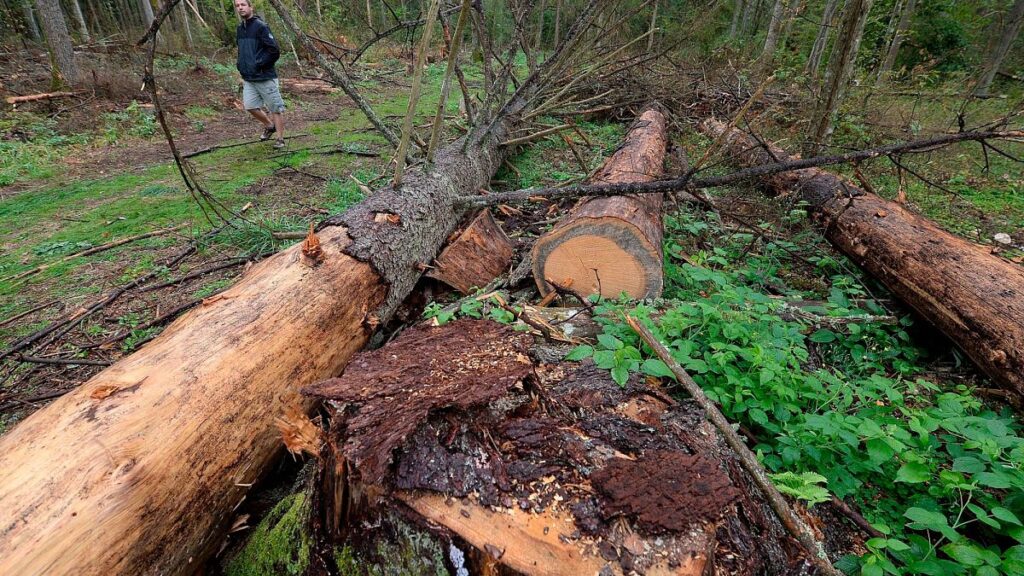Published on
•Updated
Finland’s Prime Minister Petteri Orpo and his Swedish counterpart Ulf Kristersson have urged Commission President Ursula von der Leyen to let the countries benefit from flexibilities under the bloc’s rules on forests to protect the countries’ advanced bioenergy industries.
Under EU rules, forest biomass — which includes woodchips used for energy — may count as renewable and sustainable if the member state shows that overall forest harvesting is sustainable. But Finland and Sweden’s heavy harvesting as well as the impact of forest fires that ravaged the Nordic countries in recent years endanger them qualifying as “sustainable”.
The land-use, land-use change and forestry (LULUCF) law, in force since 2018, sets nationally binding net carbon removal targets for the period 2026–2030 and requires every EU country to ensure that their land and forests don’t become a net source of emissions.
While biofuels can offer emission reductions compared to fossil fuels, the overall impact depends on factors such as feedstock production, processing methods, and policy decisions. Increased logging has been identified as a primary reason for forests shifting from a sink to a source of carbon dioxide, according to the Natural Resources Institute Finland (LUKE) and the Swedish University of Agricultural Sciences (SLU).
Known for their heavy reliance on forest biomass, Helsinki and Stockholm have historically been leveraging their biomass production to meet renewable energy goals. However, the countries’ leaders said in a joint letter on Tuesday that EU forest rules are a “major problem” leading to “unreasonable and unjustified” restrictions on Swedish and Finnish forestry.
“In Finland, logging is so intense that for at least the past five years the forestry sector has been emitting more greenhouse gases than the remaining forests can capture,” Kelsey Perlman, European Forest Campaigner, at the green NGO Fern told Euronews.
“In Sweden, most forests have been replaced with tree plantations, fragile monocultures that are increasingly threatened by bark beetles. It is no wonder the national governments in both countries want to get rid of their LULUCF objectives under EU climate legislation: it would force them to tell their forest industries to reduce the logging pressure, and they hate the idea,” the forest campaigner said.
Read the full article here


